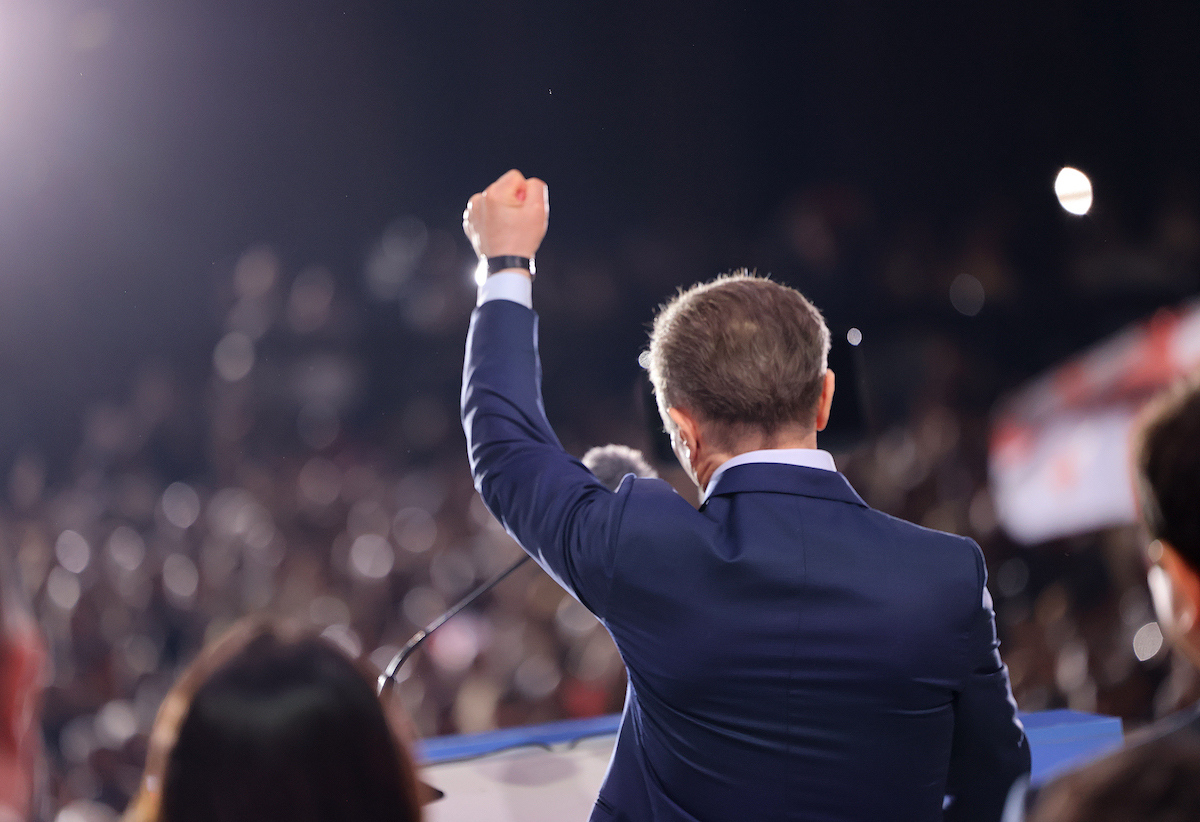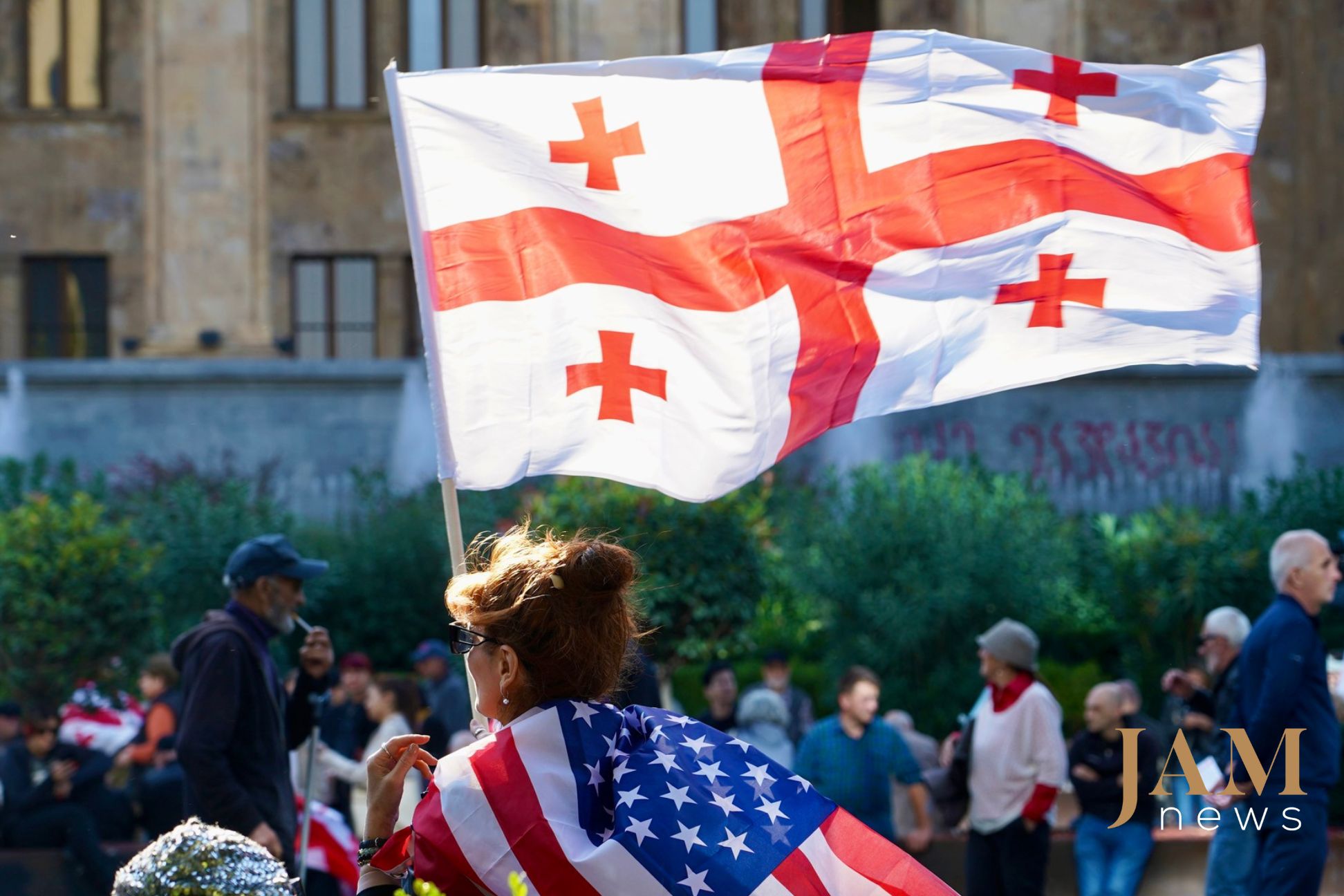The parties that Georgian Dream seeks to ban have been named
Georgian Dream to ban the opposition
Speaker of Parliament from Georgian Dream Shalva Papuashvili has named the parties that the ruling party will ask the Constitutional Court to ban. Georgian Dream is seeking to have three opposition forces declared unconstitutional: United National Movement, Coalition for Change, and Strong Georgia – Lelo.
According to Papuashvili, these political entities form a “coalition alliance with shared goals” that poses a threat to the country’s constitutional order.
Content of the lawsuit
The ruling Georgian Dream party, together with its satellite parties, has completed work on a lawsuit to the Constitutional Court proposing legislative amendments to ban ten opposition parties.
Under Georgian Dream’s new legislative package, members of a banned party or individuals associated with them would be permanently barred from participating in political processes.
The lawsuit is based on the findings of a parliamentary investigative commission established to examine the activities of the United National Movement government between 2003 and 2012.
“Our joint constitutional lawsuit calls for the recognition as unconstitutional and the banning of the following three political forces, which have formed a coalition unity and a single entity acting with common goals, and continue to operate in this capacity to this day,” said Shalva Papuashvili.
The parties named by him that the ruling party seeks to ban are:
- Civil Political Association Unity – National Movement
- Civil Political Association Coalition for Change
- Civil Political Association Strong Georgia – Lelo
According to Papuashvili, several other political groups are closely linked to these parties, including:
- Elene Khoshtaria – Droa
- Girchi – More Freedom
- For Europe – Strategy Aghmashenebeli
- European Georgia – Movement for Freedom
- Federalists
- Republican Party of Georgia
Papuashvili stated that although these parties are formally registered as independent, they in fact operate within the Coalition for Change.
However, he said there is currently no need to ban them, as they lack both organizational structure and a real chance of overcoming the electoral threshold and therefore do not pose a threat to Georgia’s constitutional order.
“The question of their unconstitutionality may be raised later if they gain significant influence over the political process,” the Speaker of Parliament added.
On what grounds the lawsuit was prepared
According to Papuashvili, in preparing the constitutional lawsuit, Georgian Dream was guided by two main criteria:
- How convincing the legal arguments for declaring a particular party unconstitutional are;
- To what extent the party in question – given its size, organizational structure, and political influence – poses a real threat to the constitutional order.
“According to international practice, banning a political party requires not only the presence of anti-constitutional ideas and actions, but also that the party have the resources to create a real threat. Therefore, in determining which parties we are asking to ban, we will rely on these two principles,” commented the Georgian Dream parliamentary speaker.
Why the party For Georgia (Gakharia for Georgia) was not included in the lawsuit
According to the Central Election Commission, four parties crossed the electoral threshold in the 2024 parliamentary elections. Georgian Dream is filing a lawsuit with the Constitutional Court against all of them except For Georgia (Gakharia for Georgia).
Papuashvili explained that the lawsuit does not concern this party because, in his words, the main legal basis for banning a party is election sabotage, and For Georgia was the only one to retain its mandates and resume parliamentary activity.
The For Georgia party resumed its work in parliament a year after the parliamentary elections, on October 28, 2025.
__________________________
Since Georgian Dream came to power, its representatives have consistently called for banning Unity – National Movement.
The first public call for banning political parties was made by the party’s founder and Georgia’s de facto ruler, Bidzina Ivanishvili, in April 2024 — a few months before the parliamentary elections.
On October 16, the Georgian Dream–controlled parliament approved, in a third reading, a series of laws granting the Constitutional Court additional grounds to ban political parties.
In particular, the court may now ban a party that is identical to one already banned in terms of declared goals, nature of activity, and membership. Originally, a party could be banned only if it threatened the constitutional order, independence, or promoted violence.
Under the new amendments, the court is required to issue a decision on banning a party no later than nine months after the lawsuit is filed, and within 14 days during an election period.
News in Georgia




















